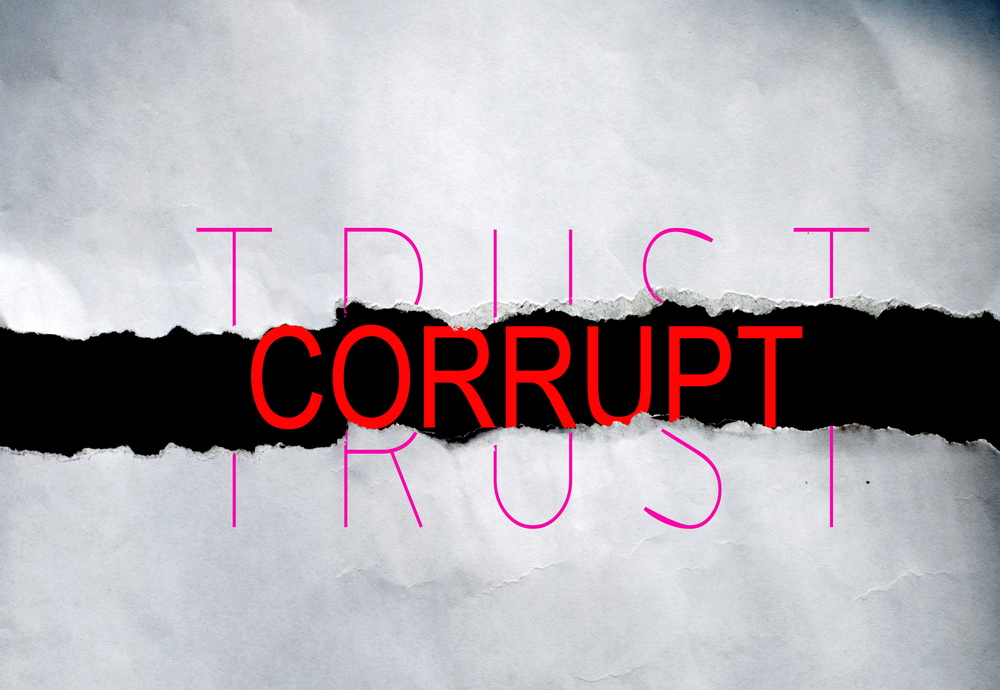To What Degree is Cambodia Corrupt?

Please note that we are not authorised to provide any investment advice. The content on this page is for information purposes only.
Cambodia’s Anti-Corruption Unit (ACU) is doing two things quite effectively. The first is rigorously investigating opposition party leader Kem Sokha for extramarital dalliances and promises of gifts to his mistresses.
The second is ensuring that the sons of Om Yentieng, the head of ACU, have secure jobs within the government. Meanwhile, four ministers who were charged anonymously with nepotism, misuse of funds, misuse of government vehicles and overpayment for purchased items have been cleared of all charges.
Cambodia’s Anti-Corruption Unit (ACU) is doing two things quite effectively. The first is rigorously investigating opposition party leader Kem Sokha for extramarital dalliances and promises of gifts to his mistresses.
The second is ensuring that the sons of Om Yentieng, the head of ACU, have secure jobs within the government. Meanwhile, four ministers who were charged anonymously with nepotism, misuse of funds, misuse of government vehicles and overpayment for purchased items have been cleared of all charges.
Both Yentieng and the Anti-Corruption Law itself were critiqued in 2010 when the law was enacted and Yenting established as head of ACU. Yentieng has been implicated in corruption himself and holds deep ties to high-ranking party officials. The law was criticised because a specific definition of ‘corruption’ was omitted at government insistence.
Such an omission means that corruption charges can be vague and variable, which was considered by some to pose a greater threat to opposition legislators than to corrupt officials. The ACU’s recent activities seem to bear out these concerns.
Corruption is a meaning-laden term and the forms it takes in Cambodia should be contextualised. Cambodia transitioned from a command economy to free market capitalism in the early 1990s, along with a number of states in Europe and Central Asia.
These states share striking characteristics: political and economic activities intertwine and limit state autonomy; greed and self-interest are perceived to be legitimate social actions, increasing economic production and market activities is of high importance, and informal social relations underpin the economy.
According to UC Irvine’s Professor Nina Bandelj, such similarities suggest there are systemic factors in the neo-liberal model of free market capitalism into which these countries emerged that are influencing corruption. Any investigation into corruption in Cambodia must grapple with the way that post-socialist states were positioned by development advisors to provide both products and consumers for the free market.
It is within this framework that corruption in Cambodia should be analysed. What crimes are prosecuted, and which criminals are investigated, is decided in a mutually re-enforcing field of self-interest and state–business interdependency.
Here, greed and cronyism go hand in hand with raising both GDP and personal wealth in the service of free market economics. When logging tycoons and corrupt officials go uninvestigated, despite evidence produced to warrant such investigations, to whom do the benefits accrue?
Case studies in Cambodia point to capitalist elites, and state officials embroiled in crony capitalism, as having most to gain from flaunting accountability measures. In 2016, for example, officials were caught embezzling funds from the National Malaria Centre through mosquito net companies.
Company contracts were suspended and the centre’s leader forced to repay bribe money. However, no one was prosecuted despite the case involving both the paying and receiving of bribes. The message given was that large businesses, like the big pharmaceutical companies supplying medication through the National Malaria Centre, could expect to profit from corrupt practices with effective impunity.
There are many players in this game. In an illuminating case, Yentieng claimed that Cambodia’s traffic police were corrupt and needed an ‘iron brush’ to scrub away corruption. The free-flow of salary supplementation for underpaid public employees is key to explaining apparently high levels of corruption among traffic police.
So too is the flow of income to marginalised citizens who sell informal wares, often through middlemen, to elite interests. These elites are not just Cambodian; regional and transnational interests are also fed by this system.
In the end, Yentieng never took that iron brush to Cambodia’s traffic police. Instead, he made a public apology to Sar Kheng, the Minister of the Interior, for suggesting they might be corrupt. Why he did this is difficult to know. One possible reason is that both salary supplementation and supplies of informal, often illegal, wares to elite developers are vital components of Cambodia’s present economy.
In a recent statement, Environment Minister Say Samal acknowledged the importance of dealing with elite corruption and complicity when trying to tackle the problem of illegal logging in Cambodia. This issue will be critical not just in the logging industry, but also in managing Cambodia’s economy with socially just and equitable policies. Improving the situation in Cambodia requires closer inspection of the larger systems in which corruption operates.
What we see in Cambodia reflects the global economy and is the ruthless execution of a zero-sum economic game being played the world over.
Putting Cambodian corruption into context is republished with permission from East Asia Forum




